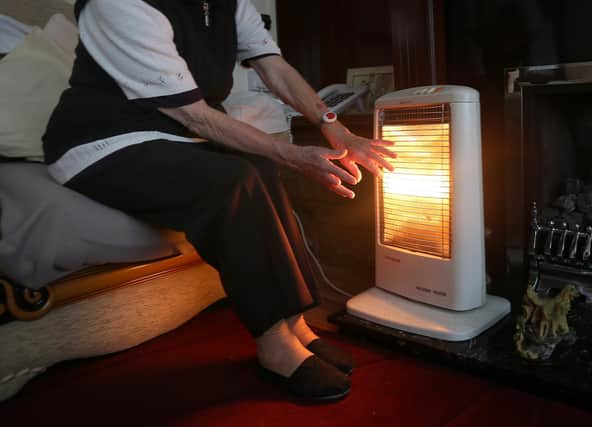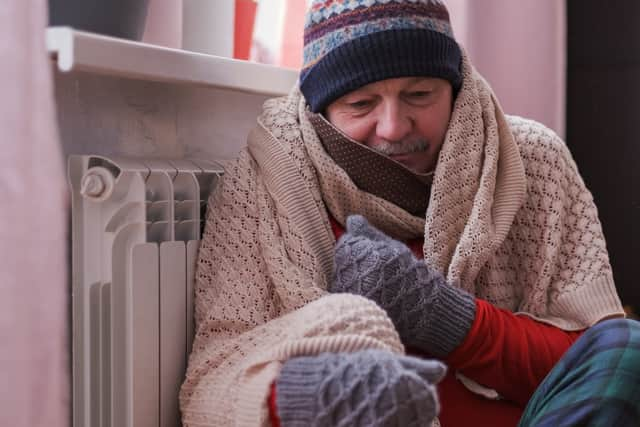Martin Lewis’ money saving experts debunk energy-saving hacks including ‘low & slow’ heating method


Energy-saving tips are the craze at the moment, and it’s understandable - with the cost of living crisis rumbling on, every little helps. However, amongst the expert advice floating about, there’s bound to be a few tales more fiction than fact.
The UK is currently being hit by a premature cold snap. In fact, temperatures have already dropped to below 0c in all four nations as of mid-October. This has prompted many to scramble for tips on how to stay warm while avoiding digging too deep into the pocket.
Advertisement
Hide AdAdvertisement
Hide AdMartin Lewis’ Money Saving Expert website has explored a host of energy-saving hacks which need picking apart, read on to see which ones may actually work and which one’s are a no go. Here’s everything you need to know.
10 energy-saving hacks debunked by Martin Lewis’ experts
‘Low and slow’ heating
A recent energy-saving hack which has grown in popularity is the low and slow heating method. The idea is that leaving the heating on low all day will be cheaper but according to the Energy Saving Trust - it’s unfortunately a myth.
While there may be some method in the madness, having the heating on only when you need it is still recommended as the best way to save energy, from leakage and overuse.
Smart meters save you money
According to Martin Lewis’ money-saving experts, smart meters have their advantages but they don’t automatically save you any money. The experts say they simply replace your existing gas and electricity meters, and keep a more accurate track of your usage.
Advertisement
Hide AdAdvertisement
Hide AdHowever, they can help you to identify ways to save energy via their in-home display. This small gadget communicates wirelessly with your smart meters, monitoring what energy you’re using and showing you how much it costs, in near real time.


Clingfilm on windows
It may feel a bit silly, but Putting a sheet of clingfilm on each of your windows traps can make a noticeable difference for homeowners with single-glazed windows. This is because it can trap a small layer of air, which helps stop heat from escaping the home.
According to the Energy Trust, you can use any material for this second layer of ‘glazing’, as long as it’s transparent and airtight. If you have double glazing, adding a third layer could make you a little warmer, but the benefit will be much less noticeable than with a single-glazed window.
Painting radiators black
While some believe paiting your radiator black can help it absorb and give off heat better, the Energy Saving Trust suggest its best to keep them the standard white. All in all, the difference isn’t too noticeable.
Advertisement
Hide AdAdvertisement
Hide AdTrapping the heat in rooms
According to the Energy Trust, it’s better to keep the doors to rooms that you don’t want to heat closed. This helps the current remain within the designated space, and stops cold air from getting in.
The Trust state that radiators, electric panel heaters and convection heaters all work by creating a convection current in a room. As hot air rises, it circles around to the other side of the room, cools and sinks, and travels back along the floor to the heater to be reheated again.


Turn lights off each time you leave the room
We’re all guilty of knowing there’s probably a light on somewhere in the house... if only we had the energy to turn it off. It’s an important effort, says the Energy Saving Trust, who recommend turning off lights whenever leaving a room. You should also be mindful of how many lights you have on at any one time.
Standby devices drain electricity
It’s not exactly a criminal offence, but it certainly all adds up, according to the Energy Trust. British Gas says that chargers and appliances will still use electricity when left in sockets – so it’s important to turn them off at the plug when you’re not using them.
Advertisement
Hide AdAdvertisement
Hide AdThe small amount of power drawn by devices while in standby - known as ‘vampire power’ - can add £60 a year to your bill, says the Energy Trust. However, with newer TV’s, the energy they admit is regulated and will only cost you a small amount in standby.
Running an electric fan is extortionate
Maybe not too relevant as we head into the winter, but the sun will return and everyone will be frantically looking for that old electric fan they’ve stored away. Some may even keep it buried in storage in fears it will burn a hole in their pocket.
However, the good news is you can use an electric fan to manage the heat, says Martin Lewis’ money-saving experts. A typical 12-inch 35-watt desk fan would cost around 1p an hour to run based on the current Price Cap rates, so about 8p if you leave it on all night.
A bigger fan wouldn’t cost much more – about 1.5p an hour. If you have a large floor fan, they typically range between 10 watts and 120 watts, costing up to 3p an hour. Worth the cost in the sweltering heat.
Advertisement
Hide AdAdvertisement
Hide AdRadiator panels
While radiator panels do save energy, it’s more important that your walls are insulated. This is to prevent the heat leaking out of your home altogether.
As for putting reflective panels behind radiators, yes, the Energy Saving Trust agrees that these could help cut energy use. They reflect heat from the radiator back into the room, so it doesn’t escape through external walls.
Heating your home while away
According to the Energy Trust, the answer is yes. In the winter, you risk frozen pipes if you’re away for too long, which can cause hundreds of pounds of damage. The general rule is to keep your heating at a minimum 12 degrees (but some say at least 15 degrees), rather than switching it off completely.
Comment Guidelines
National World encourages reader discussion on our stories. User feedback, insights and back-and-forth exchanges add a rich layer of context to reporting. Please review our Community Guidelines before commenting.
